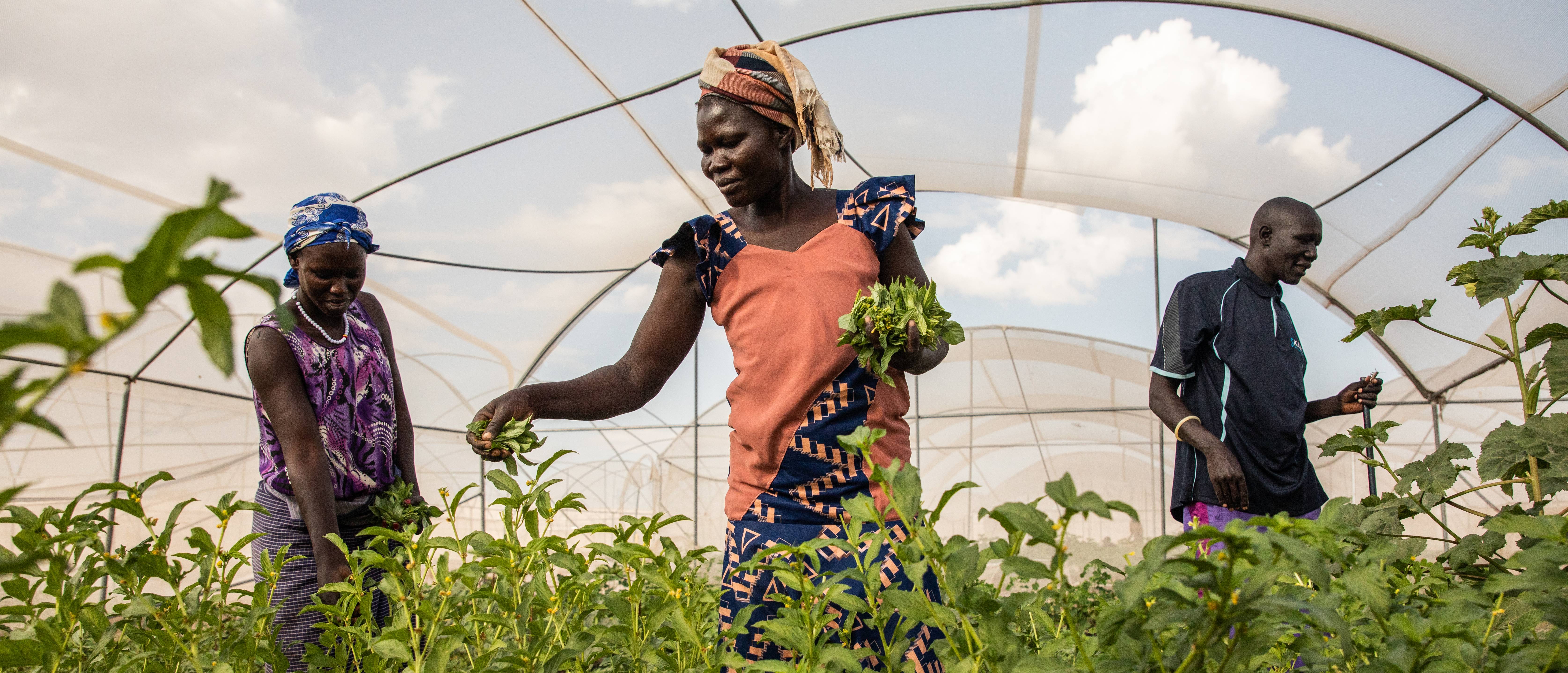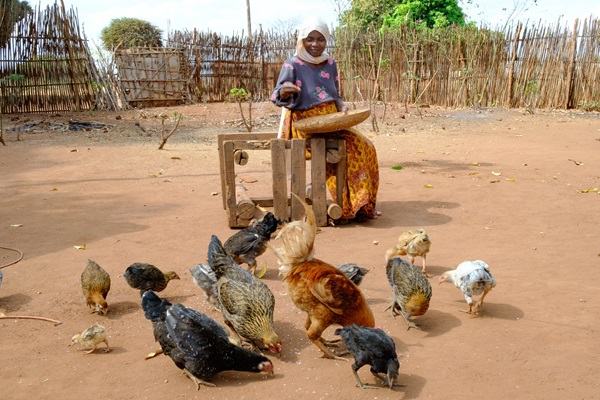Forced displacement

The increasingly protracted nature of forced displacement calls for sustainable and durable solutions. Amidst the many challenges of protracted crises, FAO is exploring new ways to work across the humanitarian-development-peace nexus to not only meet the immediate needs of forcibly displaced people and their hosts, but to also seek long-term solutions. Globally, FAO is working across key forced displacement contexts to support refugees, internally displaced persons (IDPs), returnees and host communities in protecting and rebuilding their livelihoods, enhancing their self-reliance and fostering inclusion, gender equality and social cohesion at the community level.
With the average duration of displacement currently estimated at 20 years for refugees and more than a decade for IDPs, FAO understands that programming in forced displacement settings must go beyond humanitarian assistance and work towards longer-term development and sustainable peace. Building the resilience of displaced and host communities can simultaneously respond to humanitarian, development and peace goals. Humanitarian and peace responses can achieve sustainable results only if individuals, households and societies are resilient to conflict, climate change and other interrelated shocks. FAO thus works with communities and governments to manage crises and adapt to climate change, minimize it’s negative effects and establish the foundations on which to build pathways to peace and recovery. Longer-term solutions can be ensured only if individuals, households and societies have the ability to prevent these external shocks from disrupting ongoing development progress. For these reasons, resilience building is at the centre of FAO’s work in forced displacement contexts.
News

News
Poultry farming reaps year-round rewards, Cabo Delgado, Mozambique
12/01/2024
Beyond food security, some local farmers reach for food sovereignty, one chicken at a time

News
Fish smoking ovens help internally displaced fish processors in Cameroon start again
14/08/2023
FAO provides ovens and training to enhance social reintegration and economic well-being

News
Inclusion through agriculture for refugees in Uganda
19/06/2023
Agriculture gives refugees an opportunity to earn a living and make new friends along the way
Publications

Publications
The transformative role of agriculture in refugee settings
11/2023
Forced displacement has reached a scale not seen since records began. It has not only increased to an unprecedented level, but so too has its average...
.tmb-th600x450.jpg?Culture=en&sfvrsn=8f7c6871_1)
Publications
Building durable solutions for refugees and host communities through inclusive value chain development in Uganda
11/2023
A comprehensive agricultural livelihoods approach in Kiryandongo Refugee Settlement

Publications
Towards durable solutions
11/2023
This brochure provides an overview of FAO’s work in forced displacement contexts.
Multimedia
Video
Prisca’s story: agricultural livelihoods change lives for refugee and host communities
20/06/2023
Prisca left South Sudan in 2017 along with 668 000 people, mostly women and children, to find a place of refuge for her and her family.

Photo collection
Uganda and Kenya: Fostering refugees’ inclusion and self-reliance to promote peace and contribute to social cohesion
04/08/2022
View this photo gallery on Flickr
Video
Mary’s story: Investing in agricultural livelihoods to support refugee and host communities
02/10/2023
Mary left South Sudan to find a place of refuge. She eventually settled in the Kalobeyei refugee settlement, Kenya. Kenya is home to large refugee populations...
